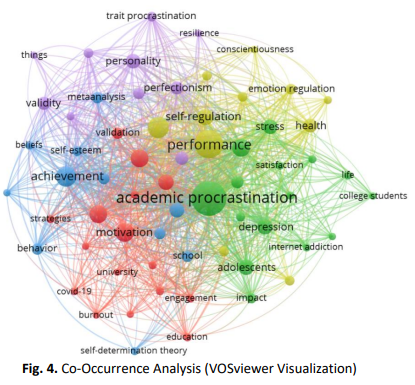The Ticking Clock: A Bibliometric Exploration of Its Impact on Academic Performance
DOI:
https://doi.org/10.37934/ard.128.1.6478Keywords:
Academic procrastination, academic performance, self-regulation, educational psychology, motivation strategiesAbstract
This study aims to explore the research landscape of academic procrastination and its impact on academic performance from 2015 to 2024. It focuses on trends, significant figures, and thematic clusters to understand the multidimensional nature of procrastination and its implications for academic performance and well-being. A bibliometric analysis of 222 peer-reviewed papers indexed in the Social Sciences Citation Index (SSCI) was conducted. A systematic methodology was used to analyze the research trends, thematic clusters, and interdisciplinary contributions in the field of academic procrastination. The analysis identified procrastination as a multifaceted issue associated with academic performance, mental health, and self-regulation. Key thematic clusters included self-efficacy, psychological factors, academic achievement, performance regulation, and personality models. The study highlighted significant international and multidisciplinary contributions, revealing gaps and trends in the field. The findings emphasized the need for integrated models considering behavioural, psychological, and environmental aspects, and practical interventions to improve self-regulation and mental health support. The study provides a comprehensive overview of academic procrastination's detrimental effects on students' performance and well-being, aligned with SDG 3: Good Health and Well-being. It underscores the importance of evidence-based strategies, including self-regulation interventions, digital resources, and mental health support, to mitigate procrastination's impact. The findings advocate for interdisciplinary approaches and targeted techniques to foster environments that promote resilience, reduce stress, and enhance academic success.
Downloads























